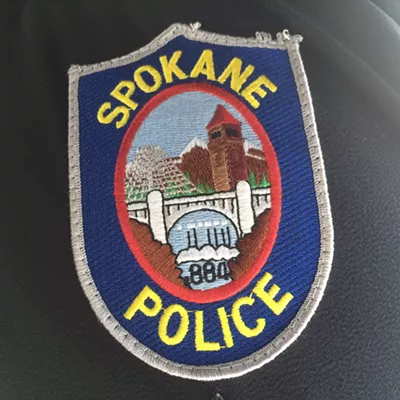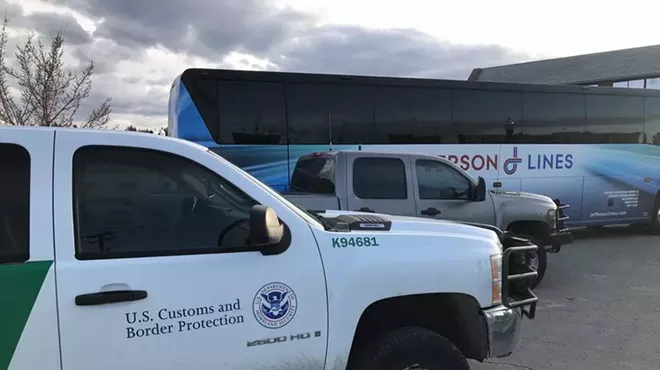Tuesday, June 19, 2018
Stuckart floats possibility of restricting Border Patrol in future Greyhound depot lease

Daniel Walters photo
Immigration is one of the subject City Council President Ben Stuckart feels most passionately about.
For over a year, City Council President Ben Stuckart has repeatedly raised concerns — and outrage — about the sweeps from federal Border Patrol agents at Spokane's Greyhound bus depot at the city-owned Intermodal Center.
The Border Patrol sweeps are why he's refused to support a new social service center being located at the center and why he was worried about the increased Border Patrol presence in Spokane.
Last Wednesday, Stuckart took it a step further: He sent Greyhound a letter, drafted with the help of the American Civil Liberties Union, suggesting that, by allowing Border Patrol to conduct sweeps on their buses without a warrant, the bus company may be violating the city of Spokane's anti-discrimination rules.
"Greyhound's decision to allow [Customs and Border Patrol] agents to access their passengers in Spokane can create and maintain a fearful and hostile environment on buses and at the Intermodal Center for people of color in Spokane," Stuckart writes. "This is the type of situation our anti-discrimination ordinances seek to avoid."
The letter also quotes witness testimony that, at least in one sweep in March, Border Patrol agents allegedly "only spent time questioning individuals that had darker skin or had an accent."
If true, the actions of the Border Patrol agents raise constitutional concerns and may have violated the U.S. Customs and Border Protection agency's own policy against racial profiling.
The letter requests a meeting with
"Greyhound has been a long-term tenant of Spokane's Intermodal Center and I look forward to continuing that relationship," Stuckart writes. "Spokane's anti-discrimination ordinances mean little if the city of Spokane cannot ensure compliance with them on its own property, such as the Intermodal Center."
So far, Stuckart says, he has not heard back from Greyhound.
"I’d like to start with
Next year, the Greyhound's lease at the city plaza comes up for renewal. Theoretically, Stuckart says, the City Council could put a stipulation in the lease that says the company can't just allow Border Patrol access to the facility without a warrant.
"More than likely, this isn’t going to be resolving itself until our lease comes up," Stuckart says.
In a statement to the Inlander in March, Greyhound argued that they didn't really have a choice in whether or not to comply with Border Patrol search requests.
Greyhound is required to comply with the law. We are aware that routine transportation checks not only affect our operations, but our customers’ travel experience, and will continue to do everything legally possible to minimize any negative experiences. Greyhound has opened a dialogue with the Border Patrol to see if there is anything that can be done to balance the enforcement of federal law with the dignity and privacy of our valued customers.The ACLU has long argued otherwise — insisting that Greyhound has the constitutional right to refuse Border Patrol sweeps without a warrant.
Stuckart's letter also foreshadows another pending debate, over how far the new human rights section, Title 18 of the city code, can be stretched.
Most of last year's concern over the new city human rights code language had centered on restrictions on income discrimination from landlords.
The language of the bill that Stuckart references could have far-reaching implications: It states that it "is the intent of the city that all people have an equal opportunity to participate fully in the life of the city and that discriminatory barriers to equal participation in employment, housing and public accommodations be removed."
Depending on how future councils or mayors read that, the legal, regulatory or political impact of that language could be considerable.
"It applies to everyone," Stuckart says.
Tags: Border Patrol , Ben Stuckart , Greyhound , News , Image


























